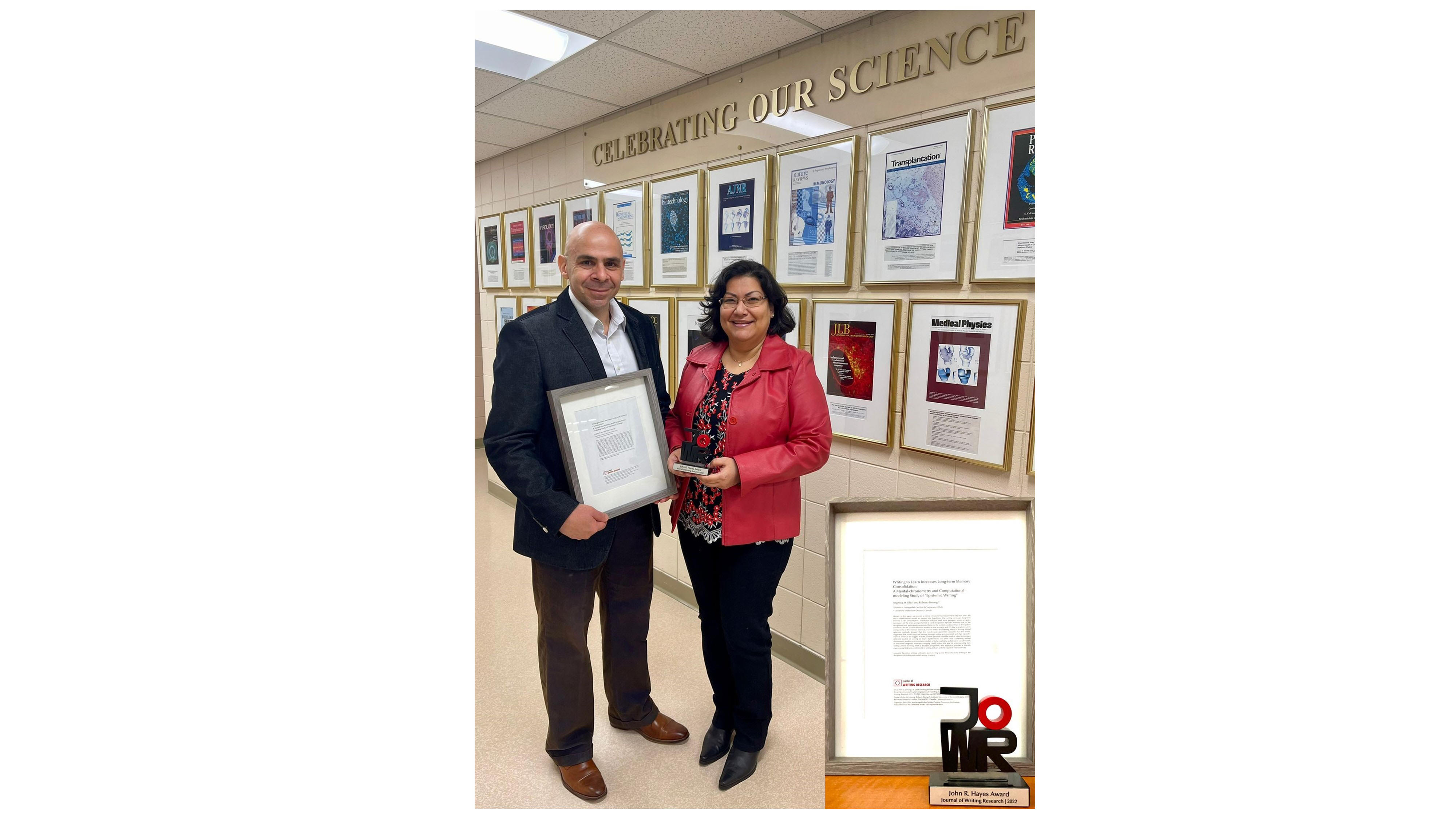
|
|
Research Areas | Recent/Representative Publications |
|
Roberto Limongi Ph.D I am a Cognitive Scientist. My research program aims to answer the question of how writing activities change our minds. To reach this goal, I make use of behavioral, computational, and neurophysiological methods. I translate basic findings to the fields of neuropsychiatry and education. My program is theory driven with tight roots in Platonian, Cartesian, and Kantian philosophical systems. I summarize these three philosophical systems in my own perspective of Active Inference under the Free Energy Principle.
|
Basic Research
|
Limongi, R., Silva, A. M, Mackinley, M., Ford, S., & Palaniyappan L. (In Press). Active inference, epistemic value, and uncertainty in conceptual disorganization in first episode schizophrenia. Schizophrenia Bulletin.(Corrected Proof, PDF)
Silva, A.
M
Θ.,
Limongi, R
Θ.,
MacKinley, M., Ford S. D.,
Sánchez, M. F***., & Palaniyappan, L. (2022). Syntactic complexity
in the diagnosis of schizophrenia: a probabilistic Bayes network
model. Schizophrenia Research
https://doi.org/10.1016/j.schres.2022.06.011 ΘEqual contribution (co-first authors) Silva, A.,
Limongi, R., MacKinley, M., & Palaniyappan, L. (2021). Small
Words That Matter: Linguistic Style and Conceptual Disorganisation
in Untreated First Episode Schizophrenia. Schizophrenia Bulletin
Open.
https://doi.org/10.1093/schizbullopen/sgab010
Limongi, R.,
Jeon, P**., Mackinley, M**., Das, T., Dempster, K., Théberge, J., .
. . Palaniyappan, L. (2020). Glutamate and dysconnection in the
salience network: neurochemical, effective connectivity, and
computational evidence in schizophrenia. Biological psychiatry,
88(3), 273-281.https://doi.org/10.1016/j.biopsych.2020.01.021 Silva, A. MΘ**., & Limongi, R Θ. (2019). Writing to learn increases long-term memory consolidation: a mental-chronometry and computational-modeling study of “epistemic writing”. Journal of Writing Research, 11(1), 211-243. https://doi.org/10.17239/jowr-2019.11.01.07 ΘEqual contribution (co-first authors) Limongi, R., Bohaterewicz, B**., Nowicka, M., Plewka, A*., & Friston, K. J. (2018). Knowing when to stop: aberrant precision and evidence accumulation in schizophrenia. Schizophrenia Research. https://doi.org/10.1016/j.schres.2017.12.018
Psychology Honours Thesis A Predictive Coding Model of Language Dysfunction in Early Psychosis (Joshua S. LeClair, 2021, PDF) Neuroscience Honours Thesis Using Oculomotor Behavior as a Probe for Aberrant Predictive Coding (Sameera Khalid, 2020, PDF) |
